Full set of photos of all searchlove 2011 speakers from day two here.
Despite potential hangover from the last nights party, everybody came thrilled to the second day of Search Love Conference in London, co-organized by SEOmoz and Distilled.
The first runner was Ciarán Norris of Mindshare. His lecture Personalization, Profiles and Privacy didn’t offer many calls to action, but two of them were important for all marketers:
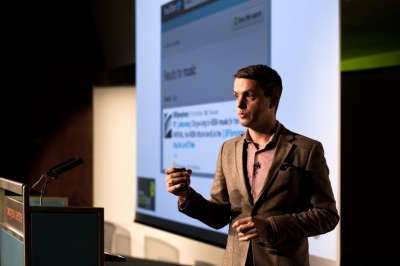
Personalization, Profiles and Privacy presented by Ciarán Norris
- Web is becoming more and more personalized. Get ready for it, you will have to learn more about visitors and treat them individually
- There are the Web rules, but there are also the legal rules of the country you operate in. If you are tracking your visitors, you may get burnt.
Wiep Knol of Gila media – Making Competitor Analysis Useful. Backlink analysis is traditional part of SEO arsenal. Wiep showed how to streamline your processes and identify the strong points of your competitor.
- Analyze your competitors. Who are they? How their sites and products look like? Do they use PPC? Banners?
- Gather data. Use tools (Open Site Explorer, Majestic SEO), pile data in CSVs, crunch them in Excel or in your own tools
- Visualise data and spot the extremes
- Deep-analyze data. Keywords, anchors, titles, urls, tags, link profile, social numbers, link growth pattern
- I can fairly suppose most of the attendees were familiar with all the steps, but Wiep was able to present it well systematized and with clever technical hints.
SEO Gadget’s Richard Baxter participated with lecture about the effect of Gamification. How to draw users into your community? Let them play!

Gamification presented by Richard Baxter
- Let them collect points
- Enable them to personalize the experience. They want avatars, signatures, lists of favourite movies, whatever.
- Give out badges
- Create virtual currency/merchandize
- Give rewards
- Give more rewards, especially for creating content
- Gie them opportunity to create links easily
- Answer their questions
While this all sounds very exciting, there are many idustries, which are quit boring, as Rand noted in Q&A. According to Richard, gamification may be difficult and expensive strategy in some fields, and may even require rethinking the product, but it is worth it. Gameficiation is way to grow your business, but you cannot start without a good product.
Patrick Aloft of Branded3 – Real world linkbuilding case studies
This is what we have been waiting for, because at the end of the day, links are still the SEO currency. It’s nice Patrick bean with a point many linkbuilders routinely forget.

Real World Linkbuilding Case Studies presented by Patrick Altoft
- You need as many links as required to get you on #1 without putting your client in risk
An avalanche of linkbuilding tips followed, we will mention the most interesting ones.
- Don’t start linkbuilding without improving poor web first. It’s useless.
- Vary anchor text (ok, this is ancient SEO knowledge…)
- Use Google suggest and keyword tool
- Infographics are ok, but they don’t generate as many links as rumoured; you should email all known infographic sites and your verticals
- Sponsor weekly/monthly columns
- Tweet with notorious spam hastags – you will get hundreds links from scrapers
- Run Twitter competition. Lot of retweets does make a difference
- Offer media (pictures, videos) for link
- For fast-changing product range, use widgets
- Create model for pricing links to scale up
- If you mean linkbuilding seriously, invest time and money and develop your own tools
- Linking to blogposts, or products? First build trust, when you have it, target products
- There is no general link saturation, but be careful with creating too many links of one kind
- Don’t create your agency linking networks. Clients don’t like it (no wonder)
- Monitpor links; their value is not eternal. Be careful for sites gone bad!
- Consider exact-match domains. There are quite many still available, but they can be suddenly devaluated any day or night. On the other hand, if you don’t, your competitors will take them sooner or later. The decision is yours.
Patrick’s linkbuilding process:
- Competition analysis
- Shortlist target sites
- Get story ideas
- pitch stories
- Produce the content
- Place links
- Promote links
- Track links
Hannah Smith – The Past, Present, And Future Of Linkbait
Releasing simple piece of genious content and getting thousands of links in return is the SEOs’ wet dream. Distilled’s Hannah Smith showed several examples from the Internet history (which were known to everyone who did not spend last years hiking alone in Himalayas).

The Past, Present, And Future Of Linkbait presented by Hannah Smith
Linkbaits are mostly combination of clever idea, good connection with the crowd’s mood, and luck. However, also they can be systematized
- Start small. Don’t bet too much money and time and the result can be still amazing
- Build relationship
- Mitigate against failure, keep PR hook in case you don’t take off
- Invest in platforms. Smartphones and tablets are ruling the world
- Create superb content. Then every page you have is a natural linkbait (see oyster.com as an example)
- Start now!
Stephen Pavlovich from Conversion Factory – What Does a CRO Expert Bookmark?
Conversion rate optimisation is a large field, involving marketing, design, but also psychology. Stephen offered several examples and hints, based mainly on his collection of screenshots in Evernote.

What Does a CRO Expert Bookmark? presented by Stephen Pavlovich
- Capture people, who are in process. (Email people with abandoned carts, offer them discounts if they return). Identify the problem, why they are leaving.
- Collect competitors landing pages and seek inspiration
- Copywriting is not dead, quality still counts
- Test variants until you find the best one
- Admit your weak points and turn them into strong points (Are you #2 on market? That’s why you try harder then #1!)
- Use personal touch. People like to be recognized
- Get inspiration also in the offline world and history
Martin McDonald – How Brands Should Do SEO?
Head of OMD’s SEO department promised no black hat insights in his speech and fullfilled his promise. Martin gave his vision of big brands dominating the market soon, which send creeps to some people. But his reasons are rational.
- Big traditional offline brands have largely underestimated or even ignored SEO
- They have more money than Uncle Scrooge
- They don’t have rankings now, but they have huge authority. Rankings will come when they finally realize they potential
- SEO industry needs to grow up to become full part of Big Business
His speech was devoted mainly to the existing brands, but Martin mentioned also several hints in building own strong brand
- Create buzz before you launch. It may not be easy to get attention to new Forex site, when people realize that it’s just…well, Forex site.
- Develope brand evangelists. They are the ones creating your brand
- Don’t care so much for the ‘brand’ – just love what you are doing. If needed, recruit even McHammer
Martin McDonald’s lecture was the last one before Head to Head, and his last points were about the challenges waiting for SEOs. Watch out, because:
- The things you know may suddenly disappear. Counts especially for keyword and ranking data
- Things which are free may be monetized by the owner.
Head to Head
As usually, Rand and Will picked several sites from the audience and ran a quick audit. While Rand won according to the number of raised hands, Will wasn’t much worse, so here are their points summarized.

Head to Head – quick audit by Rand and Will
- Outdated design pulls the site down.
- Crap content does the same. Clean it.
- Don’t show thin content. No questions and no answers in Q&A section are ridiculous
- Try interns for linkbuilding. Fresh minds have fresh ideas
- Recruit bloggers to help you with content
- Use surveys to identify your weak points. Trust is often missing.
- Find and speed up slow pages
- Build and improve tools. Sliders are always better
- Both guys didn’t have much time to discover some really deep techy issues, but even 3-4 hours were enough to point number of serious problems and come up with ideas, which could have been done on the sites long time ago.
Search Love 2011 in London confirmed its position as the most important SEO conference in the world. Despite several great tips on linkbulding, it was more social then SEO, so if you are still an old-school linkbuilder and technical SEO, it may not have the right taste for you. But the question is, how much time more do you have on the Web…
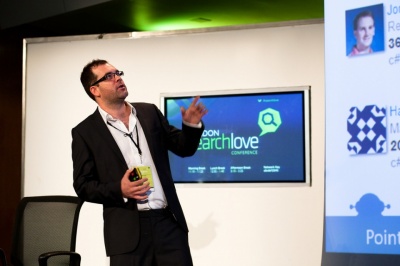
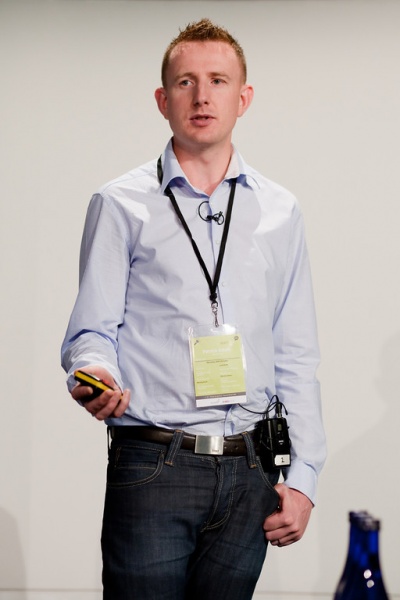
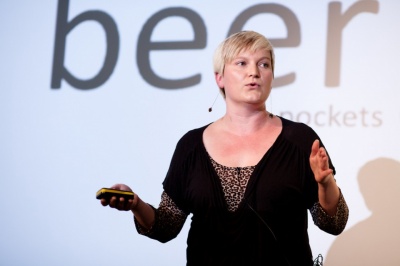
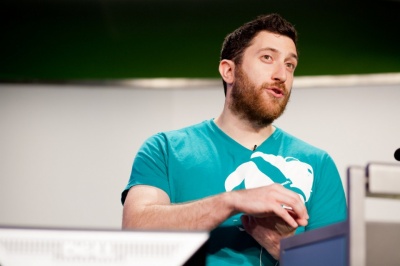
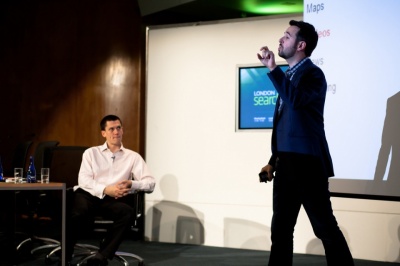
This was 2011, has anything like it been held since and if so where can i find further information please?
Distilled is very much still offering their SEO conferences, Alan. We attended until about 2013. There’s also SEO Brighton in the UK which is apparently a big deal.